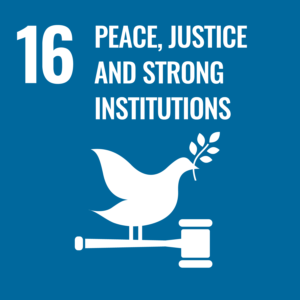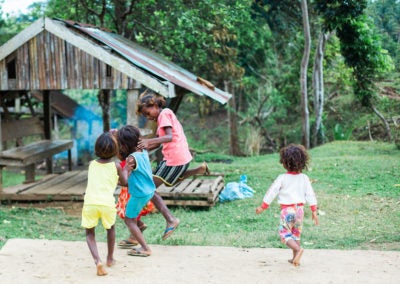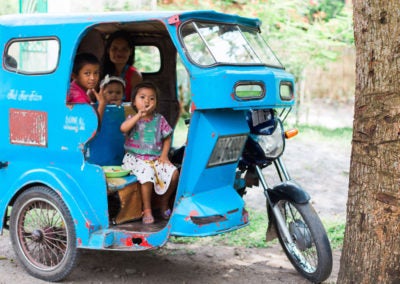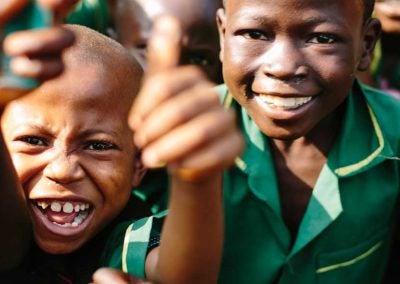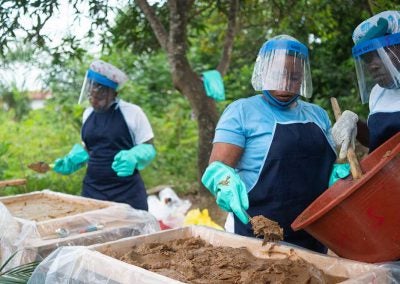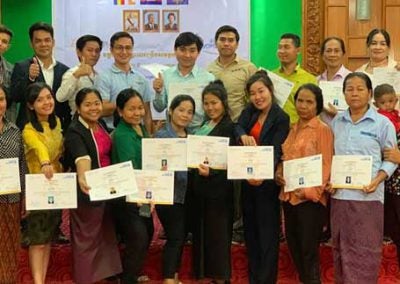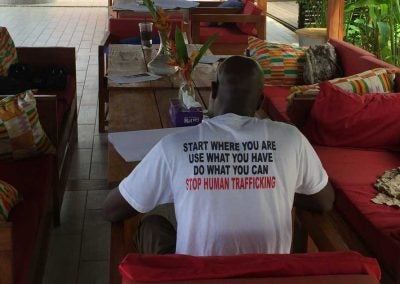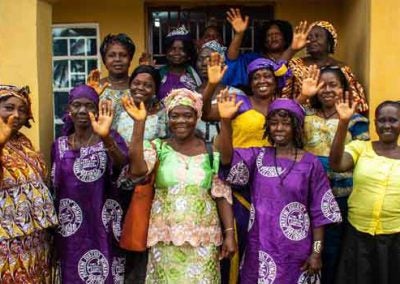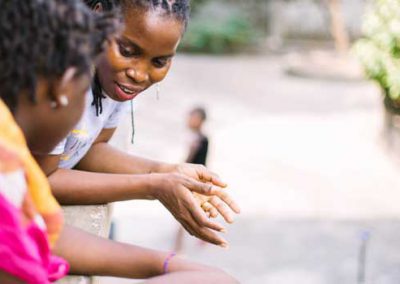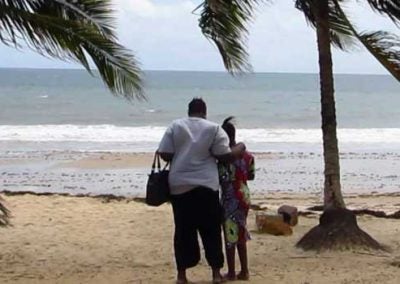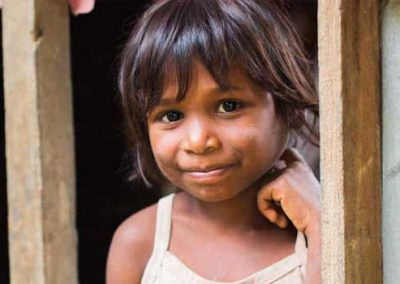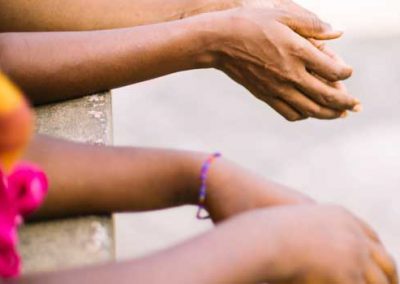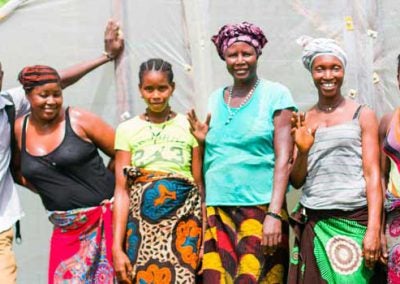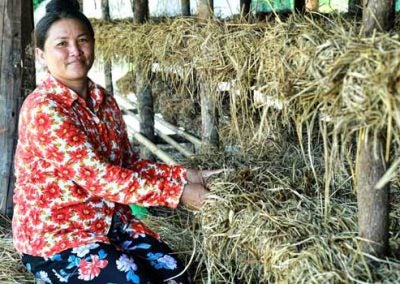Enhancing Responses to Survivors of Cross-Border Trafficking
An action research project to address cross-border human trafficking
Project Information
Resources
Delivering rapid interventions that mitigate the impact of human trafficking and build resilient communities
Migration is predominantly a livelihoods strategy and is driven by poverty. People risk leaving their homes and communities in order to have a bettter chance of survival and lifting themselves out of poverty.
When it comes to cross-border trafficking, unfortunately, migration is a significant risk factor for experiencing trafficking.
According to the 2018 Global Report on Trafficking in Persons (TIP), women make up over 70 percent of all victims of trafficking, and within the ASEAN region, they make up 47.8 percent of all migrants, as noted in the Women Migrant Workers in the ASEAN Economic Community report.
From October 2018 through March of 2019, World Hope implemented a UN Women funded project to prevent and mitigate the impact of trafficking by establishing and delivering rapid protection interventions aimed at supporting survivors. The project was implemented in the three Northwest provinces of Cambodia bordering Thailand.
Project Goal
- Mobile Response Strategy and Teams established in three provinces are responsive to human trafficking and related escalation, focusing on the prevention of trafficking, identification of returning survivors and others at risk using a client-centered approach, and provision of services
Outcomes
- Three Mobile First Response Teams (MFRT) were formed and established
- Three Coordination Mechanisms overseeing the coordination of the MFRT were established
- Over the course of 6 months, the MFRT teams in the three provinces effectively identified and provided support to and referrals for 54 women survivors of cross-border trafficking
- The Guideline and Engagement Structure, along with the lessons learned, were written as a framework to guide future implementation of similar actions
“Since the training, I feel more confident approaching survivors. I now have better understanding on the different ways women are exploited, and most especially have greater self-awareness of my own attitudes towards survivors, which helps me to be more effective as a helper.”
Mobile First Response Team Composition
Membership of the Mobile First Response Teams (MFRT) included key staff of local and district government entities responsible to respond to survivor needs, social workers, law enforcement, and members of NGOs and civil society organizations. Teams also included staff from health centers, border/migration police and anti-TIP police.
In order to ensure the MFRTs are able to well integrate within the community, it is ideal that the members of the team are locally based, while also well connected with specialized services available beyond the community.
Principles of a Mobile Response System
Members of any mobile response need to be skilled and knowledgeable in professional social service standards and be clear on personal and professional boundaries. Topics trained upon for these MFRTs included understanding safety needs, the practices of confidentiality and non-discrimination, engaging respectfully with the client, taking a survivor-centered approach, and basic counselling skills.
How MFRT's Engage
Step 1: Case Identified
MFRT’s refer cases directly to appropriate service providers or law enforcement as appropriate.
Step 2: Assessment
MFRT’s who did the referral may provide insight into the case, especially the situation observed at time of survivor identification.
Step 3: Service Provision
Depending on their level of engagement in the community where the survivor lives, MFRT’s may provide supportive follow-up in the community and home while the survivor receives services.
Step 4: Reintegration and Follow-up
MFRT’s may also support reintegration or dialogue within the community to increase acceptance of the returning survivor. They may also work with communities to increase efforts aimed at preventing further trafficking risk.
How It Worked
UN Women identified mobile response as a way to reach survivors of trafficking and those at risk. The aim? To identify survivors of trafficking, refer to necessary services (such as psychosocial support, health care, legal aid), and provide follow-up. The project also collected data about survivor help-seeking behaviors, service provider coverage, and worked to identify response gaps, especially relating to using a client-centered approach.
As the implementing partner for this project, World Hope International worked to identify repatriated and returning survivors, learn the services they required and/or found most supportive, map services available, and developed a mobile response mechanism, setting up teams and training responders.
A mobile response service is an agile response to needs regardless of geographical location. In the case of this mobile response for survivors of trafficking, teams worked in communities along the border and areas where survivors were returning to identify those in need and connect them with available services. In this project, services were provided by social workers and helping individuals from a coalition of responding organizations equipped to work with survivors.


